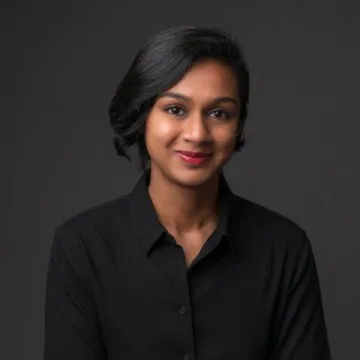GÖG-Colloquium | Promoting meaningful engagement. A global framework and perspective for Austria
Lecture with Yvonne Arivalagan, an event jointly organized by GÖG-units: ÖKUSS (Austrian Competence and Service Centre for Self-Help), KoZuG (Competence Centre for Future Health Promotion) and KoGuG (Competence Centre for Health Promotion and Healthcare).
“The right to participate is an essential feature of the right to the highest attainable standard of health.”
The keynote speaker Yvonne Arivalagan, co-author of newly released WHO global framework on meaningful engagement (2023) outlined the need for and the great benefits of meaningful engagement of people with lived experience for the health care system on a global as well as regional scale. Due to the urgency, complexity, and burdens of NCDs, mental health and neurological conditions, changes are necessary to meet current challenges. The WHO Framework (for Meaningful Engagement) promotes a new distribution of power in favour of vulnerable groups and those who have so far been less heard in decision-making processes. It describes how people with lived experience can be engaged with dignity and respect and provides comprehensive information on the importance and positive effects of meaningful engagement. Leadership and commitment for participation are essential to make sure, that people living with health conditions, become part of processes and defined health solutions. On a regional level, supporting products and examples were discussed, which can promote the successful application of the WHO Framework in WHO member states, e.g. in Austria. There is “no one size fits all” solution, further establishment of safe spaces for engaging people with lived experience is key. Contextualization and adaptation of equitable processes to the region in question foster successful implementation of meaningful engagement.
The participants of the colloquium named transparency, as well as shared decision-making processes and target group specific formats as some of the most important guiding principles for meaningful engagement in Austria. The keynote speaker concluded her presentation by stating that people, when meaningfully engaged, act as an accelerator for change around the world. Lived experience should be recognised and treated as expertise. People with lived experience have a valuable understanding of health conditions, of (gaps within) health services and of everyday-life-challenges. With their numerous resources they, contribute to equitable solutions.
The framework is available for download at: WHO framework for meaningful engagement of people living with noncommunicable diseases, and mental health and neurological conditions
Yvonne Arivalagan is a Multistakeholder Engagement and Policy Specialist at the WHO Global Coordination Mechanism on NCDs, and a co-author of the WHO Framework on the Meaningful Engagement of People Living with Noncommunicable Diseases, and Mental Health and Neurological Conditions. She leads work on the meaningful engagement of people living with NCDs, mental health and neurological conditions as well as innovative and equitable grassroots approaches to promote health. Previously, she has worked on shaping global policy and practice related to noncommunicable diseases and healthy ageing with the United Nations Department of Economic and Social Affairs, World Economic Forum and the National University of Singapore.
The presentation slides are available here: > DOWNLOAD < .
Welcoming
Guy Fones, Head of Global Coordination Mechanism on NCDs, World Health Organization
Facilitation
Joy Ladurner, ÖKUSS and Psychosocial Health at Austrian National Public Health Institute (GÖG)
Further reading:
Intention to action series: people power. Perspectives from individuals with lived experience of noncommunicable diseases, mental health conditions and neurological conditions (who.int)
Our short film onmeaningful engagement
